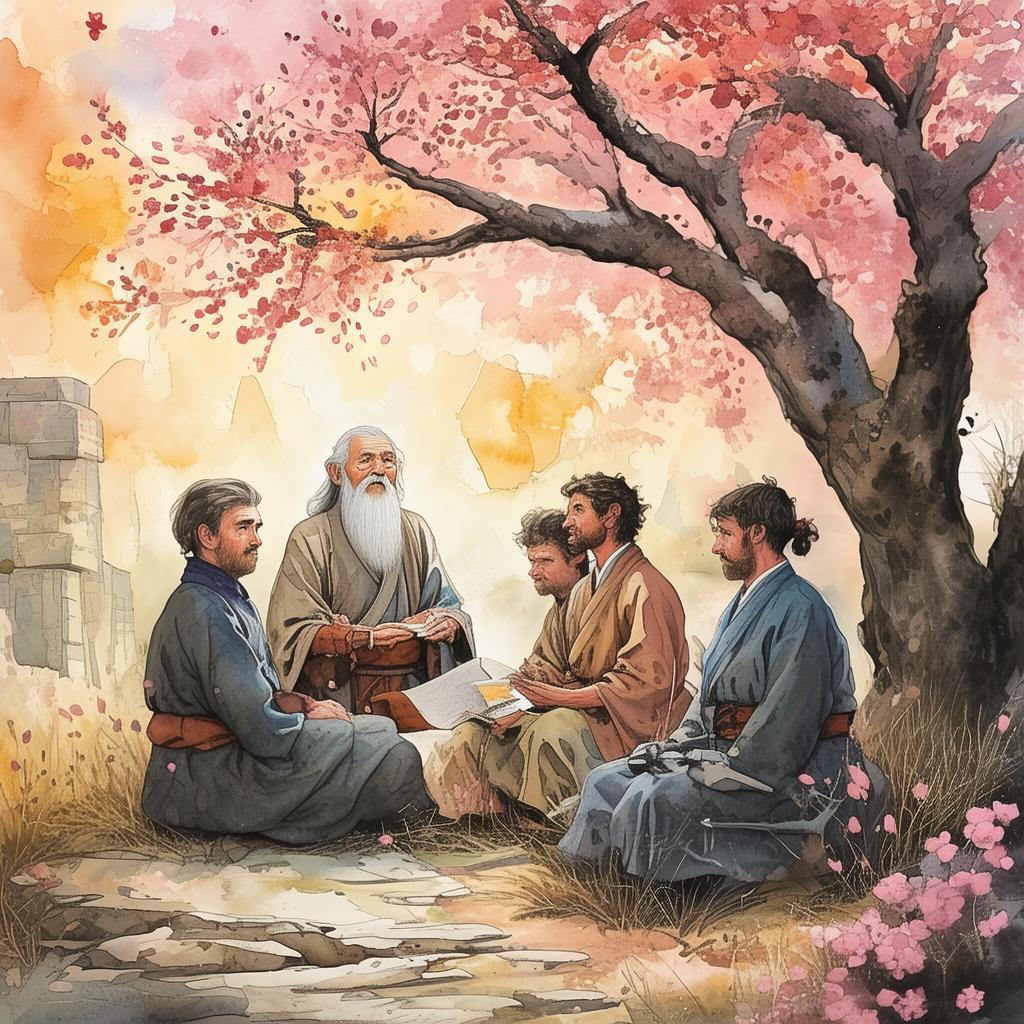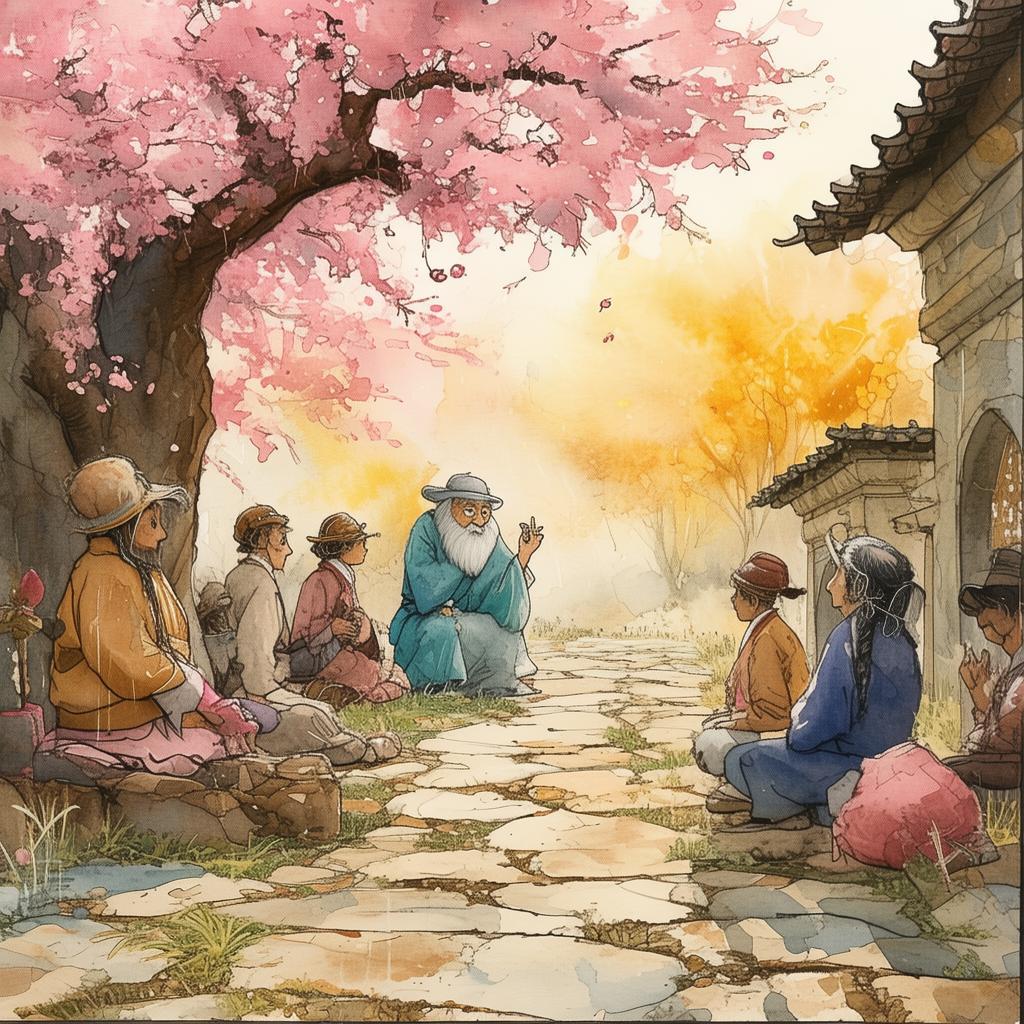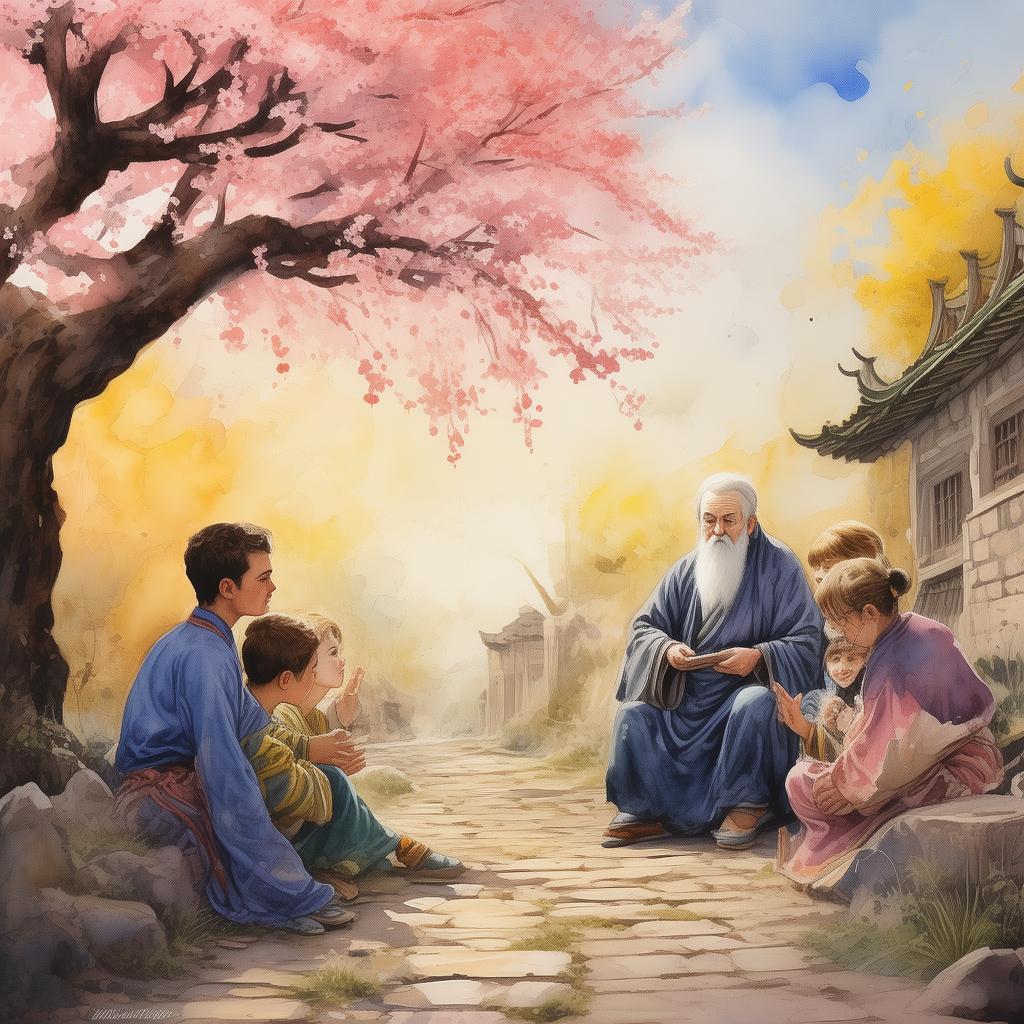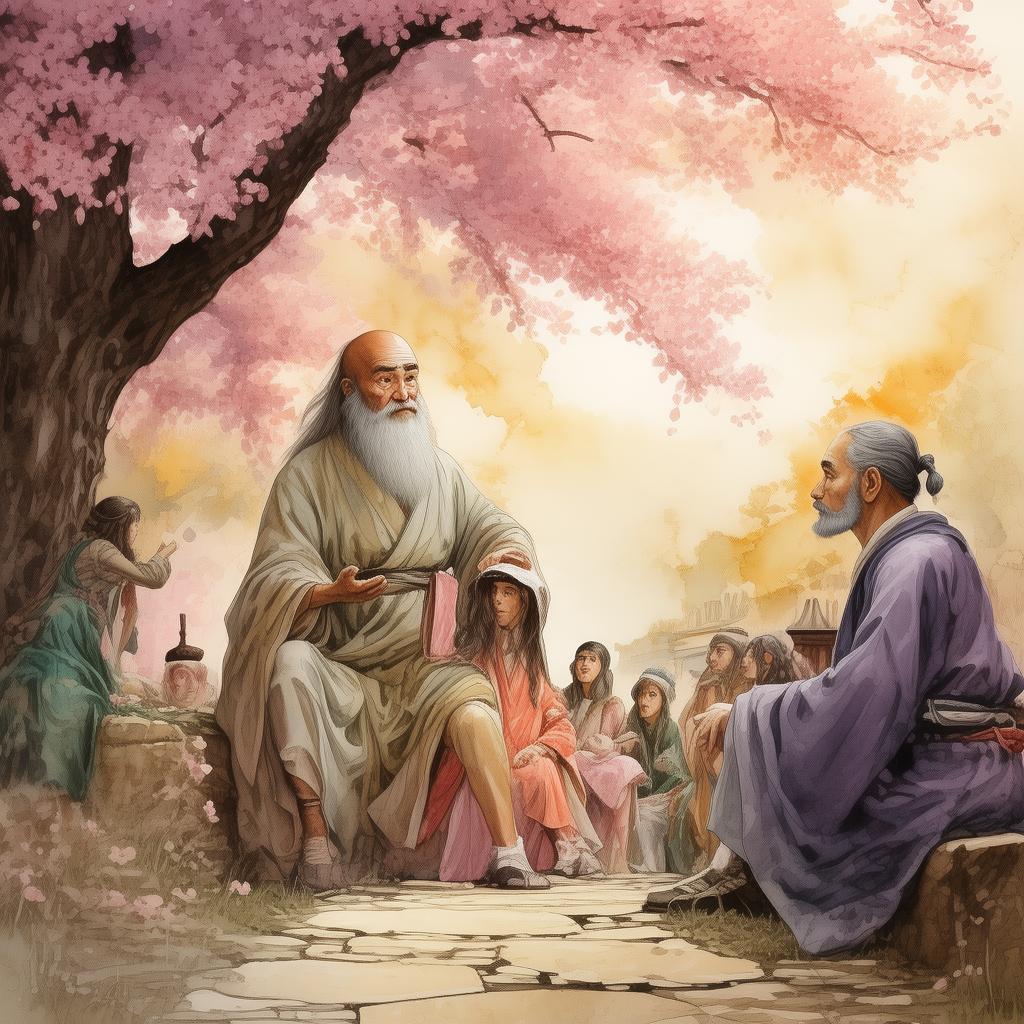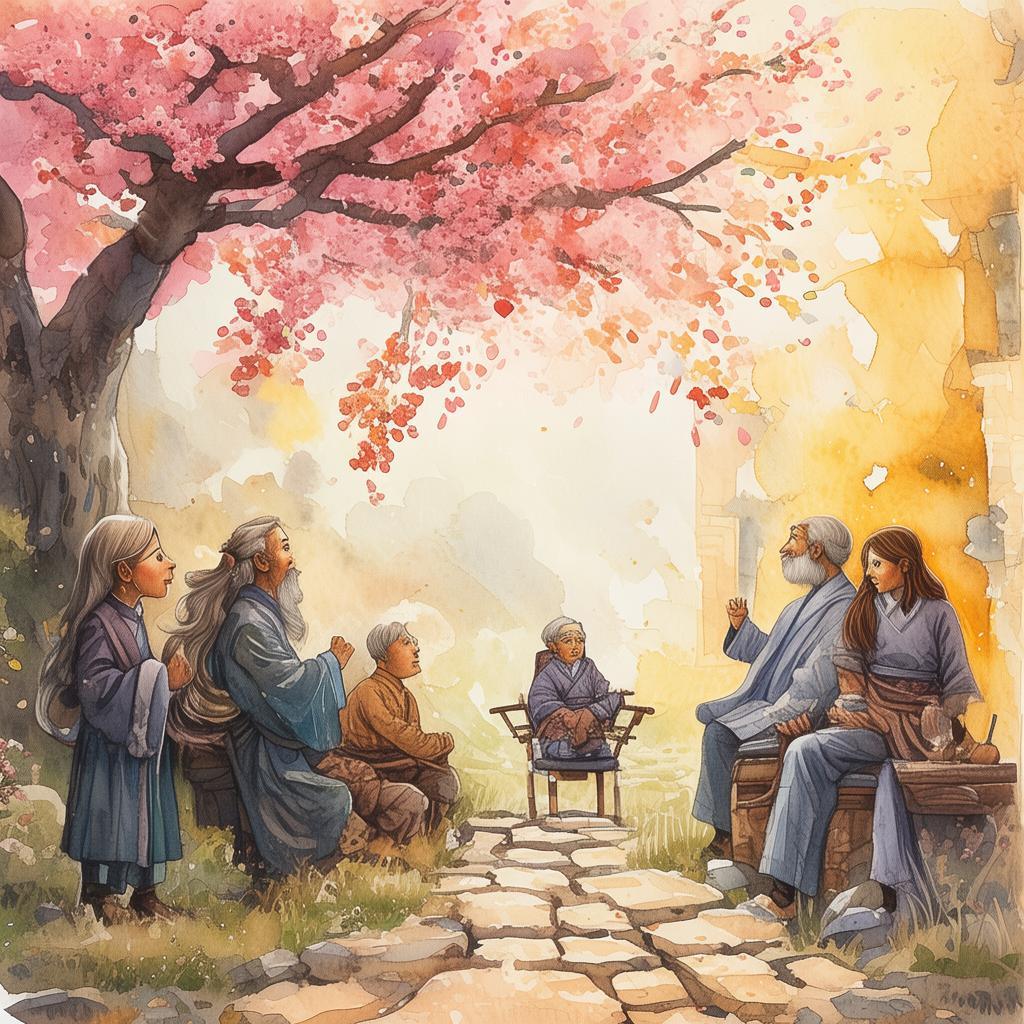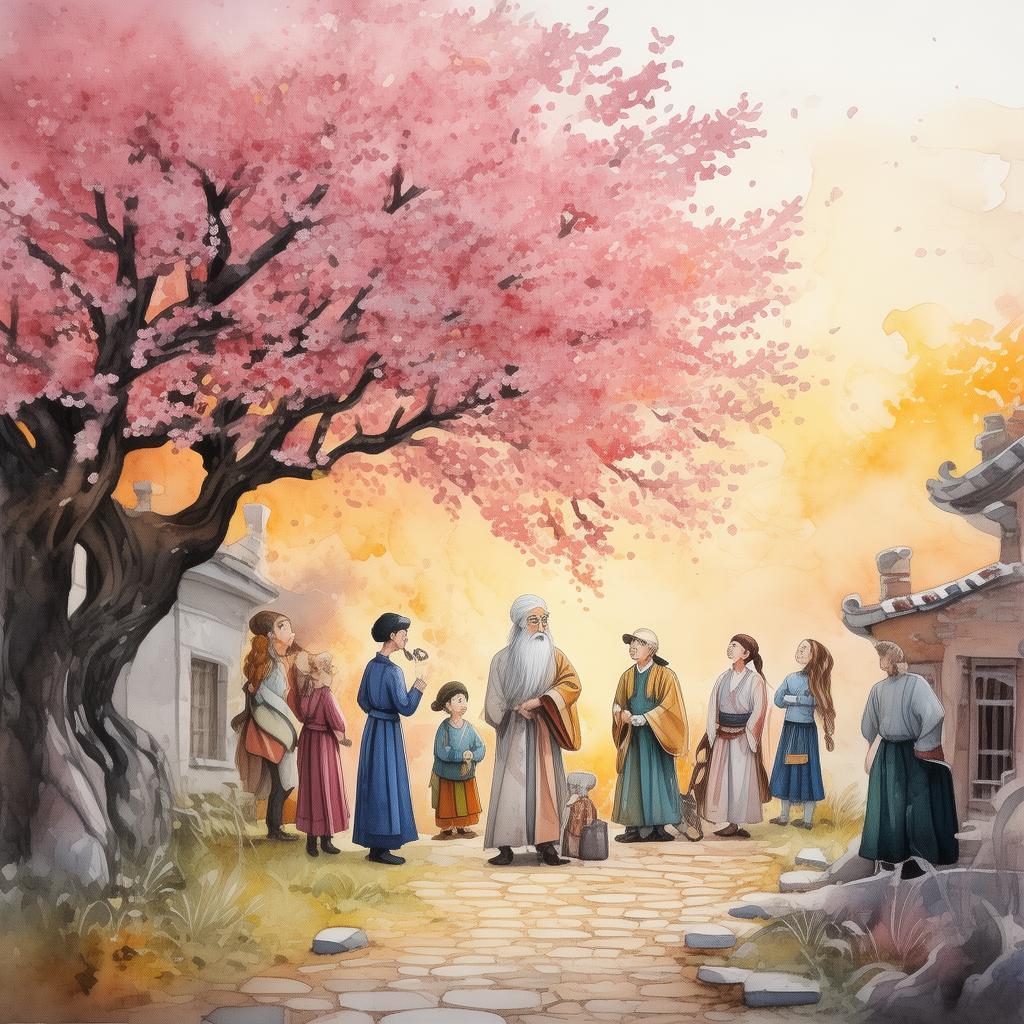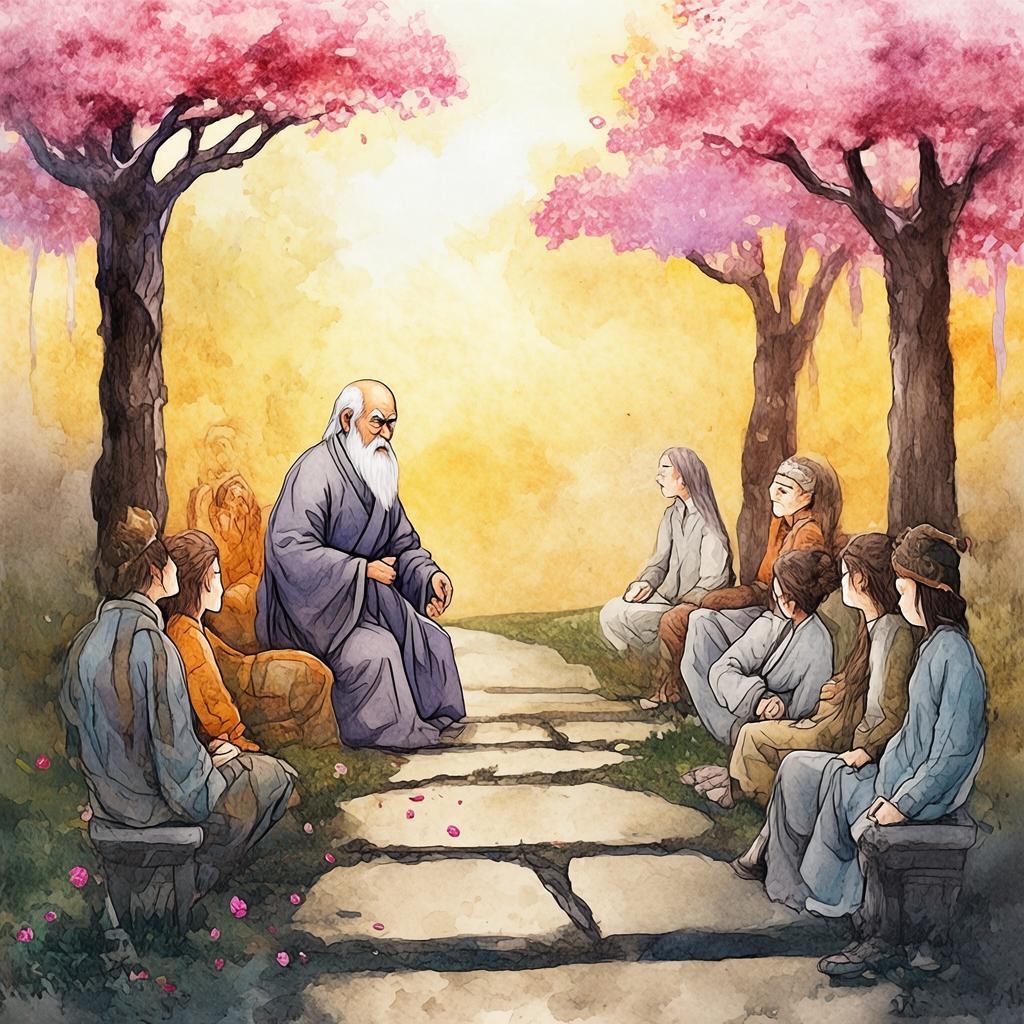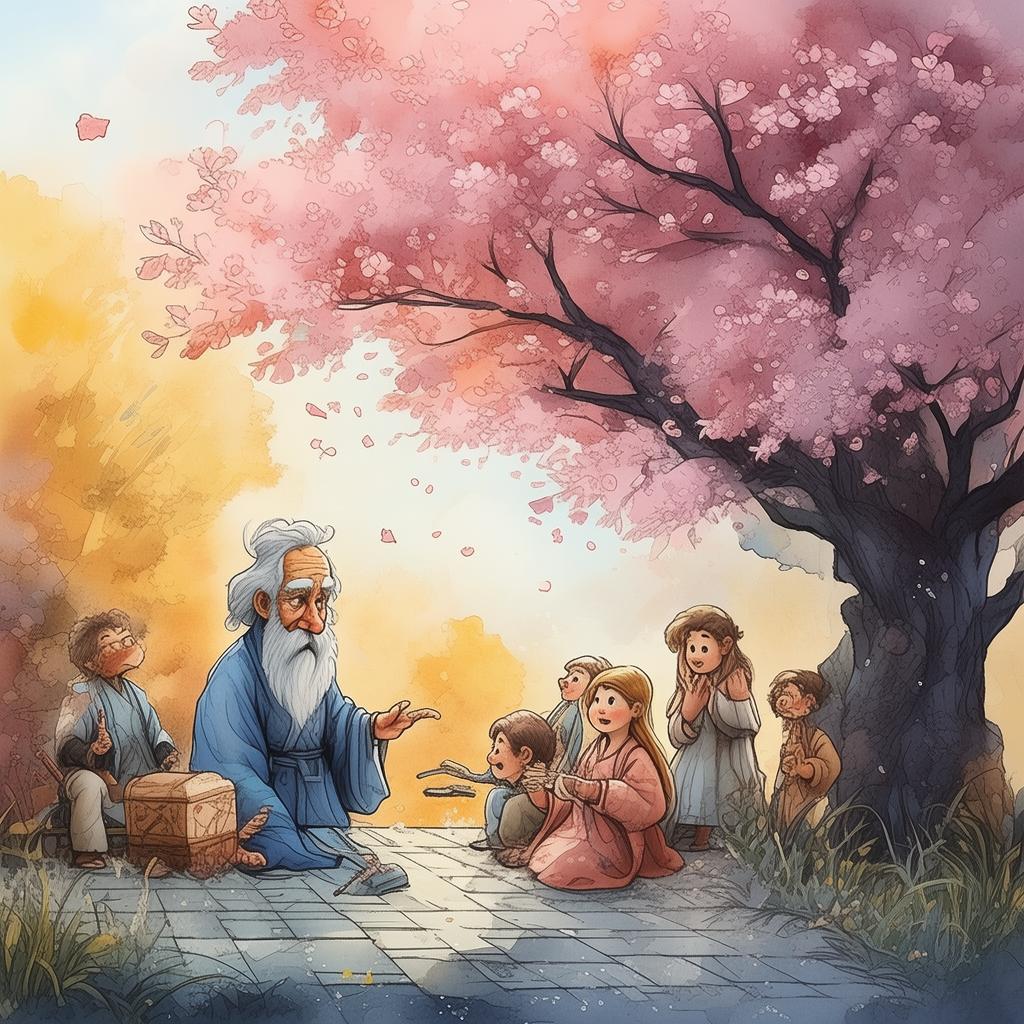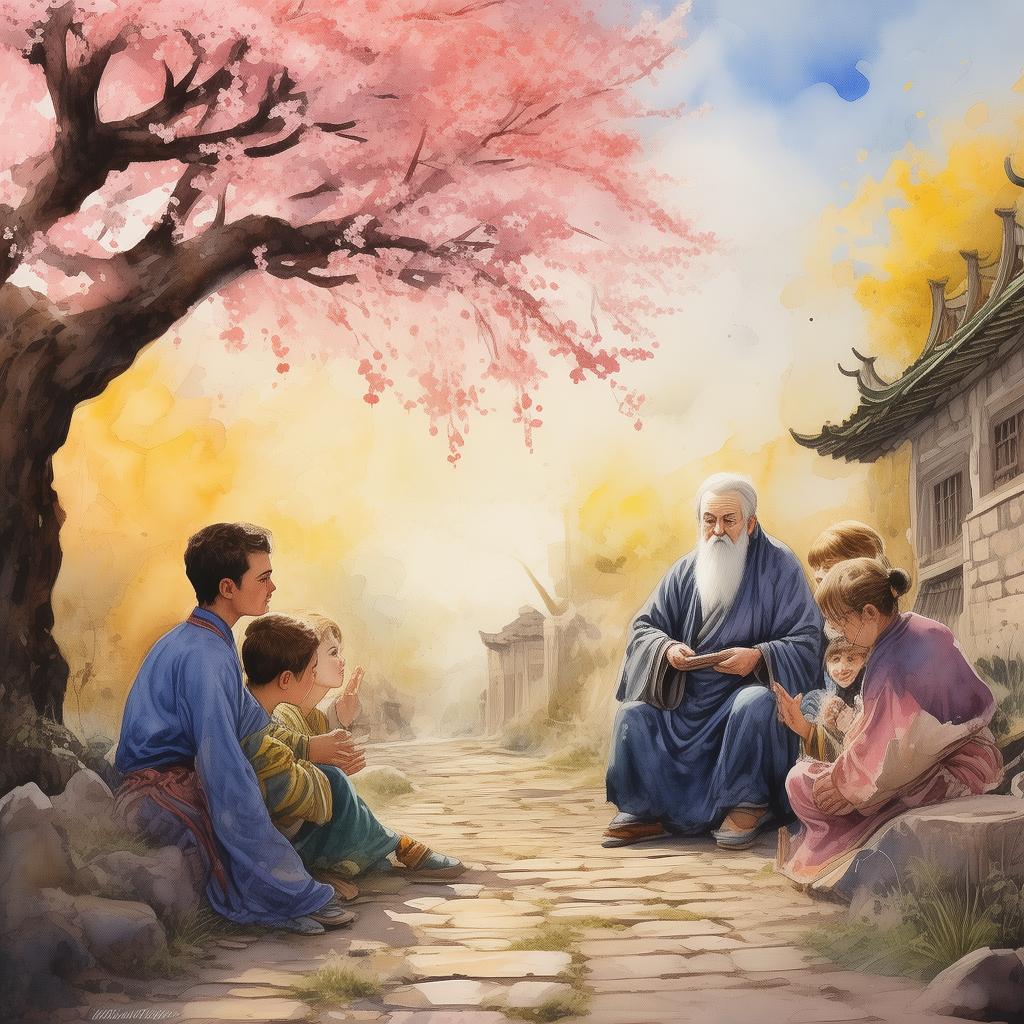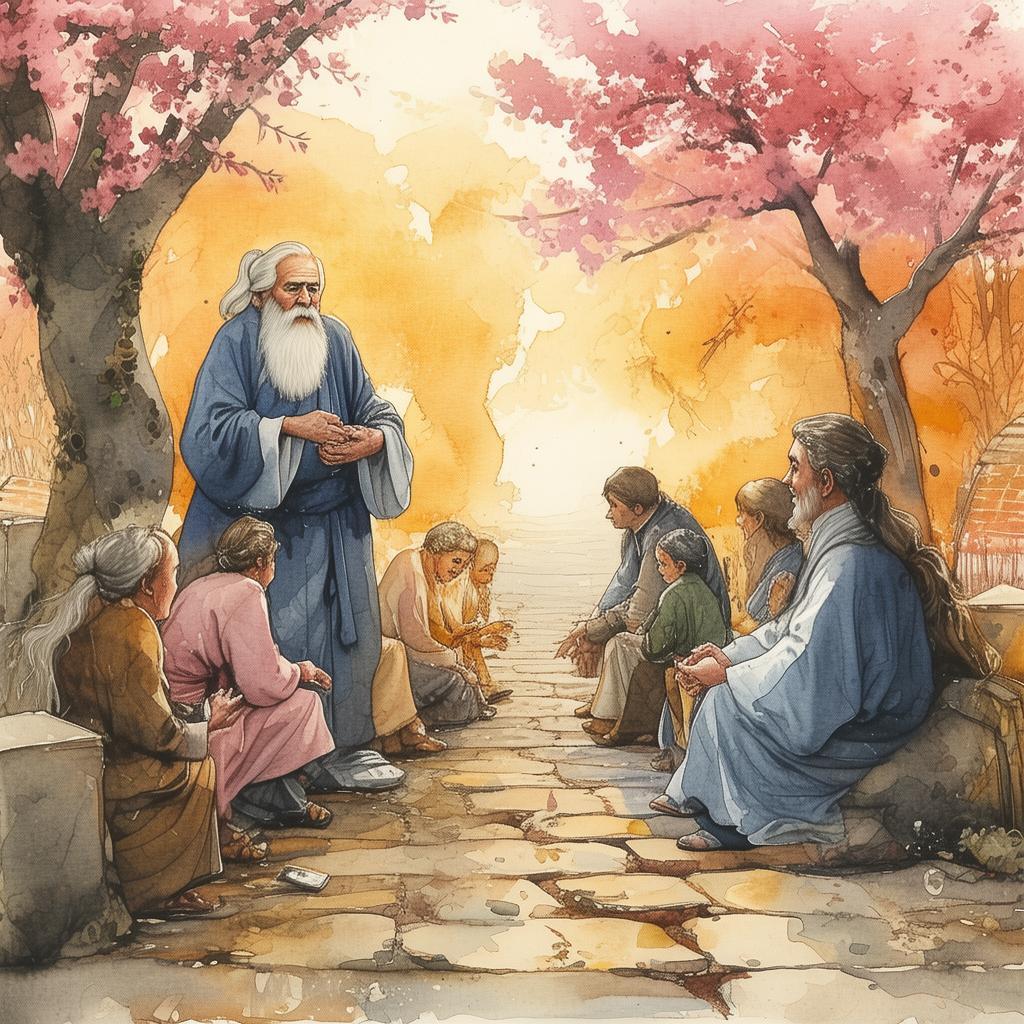The Envious Jesters' Grand Gamble
In the heart of the kingdom of Jolindor, where jesters were as beloved as the king himself, two jester brothers, Gaius and Thaddeus, were known for their wit and jests. They were as different as night and day. Gaius was the jester of laughter, his humor and pranks spreading joy wherever he went. Thaddeus, however, was the jester of mischief, his jokes and pranks often meant to provoke and unsettle.
Their rivalry was as old as the kingdom, born from a bet between their parents when they were but infants. The parents, hoping to encourage their sons to excel, had placed a wager on which child would become the most renowned jester in the land. The bet was not only for fame but for the honor of being the court jester, a position that held great prestige and power.
As they grew, Gaius and Thaddeus' competition intensified. They would vie for the favor of the king, outdo each other in the jesting contests, and vie for the attention of the courtiers. But it was not just the favor of the king that they sought; it was the envy of the other. Each believed that if he could surpass the other, he would be truly great.
One day, as the kingdom celebrated the Midsummer Festival, a festival known for its grandeur and laughter, the king proposed a new challenge to the jesters. He would hold a grand jesting contest, and the winner would receive a grand reward: a position that would elevate him above the other in the eyes of the kingdom.
The news spread like wildfire, and Gaius and Thaddeus began preparing for the contest. Gaius, ever the optimist, focused on creating the most hilarious routine, one that would leave the audience in stitches. Thaddeus, however, saw an opportunity to outdo his brother. He devised a plan to steal Gaius' ideas and present them as his own, confident that his mischief would overshadow Gaius' humor.
As the day of the contest approached, the kingdom buzzed with excitement. The courtiers were eager to see which jester would win the prize. The day itself was a blur of color and sound, with jesters from all over the land performing their best routines.
Gaius took the stage first, his performance a whirlwind of slapstick comedy and witty banter. The crowd roared with laughter, and the judges were impressed. But as he concluded, Thaddeus stepped forward, his routine a near-perfect copy of Gaius'. The crowd was bewildered, then amused, as they realized the jester's prank.
As the festival went on, Thaddeus continued to outdo Gaius, his routines becoming increasingly daring and clever. The crowd was on the edge of their seats, unsure of who would win. But as the night wore on, a shadow began to cast over the celebration.
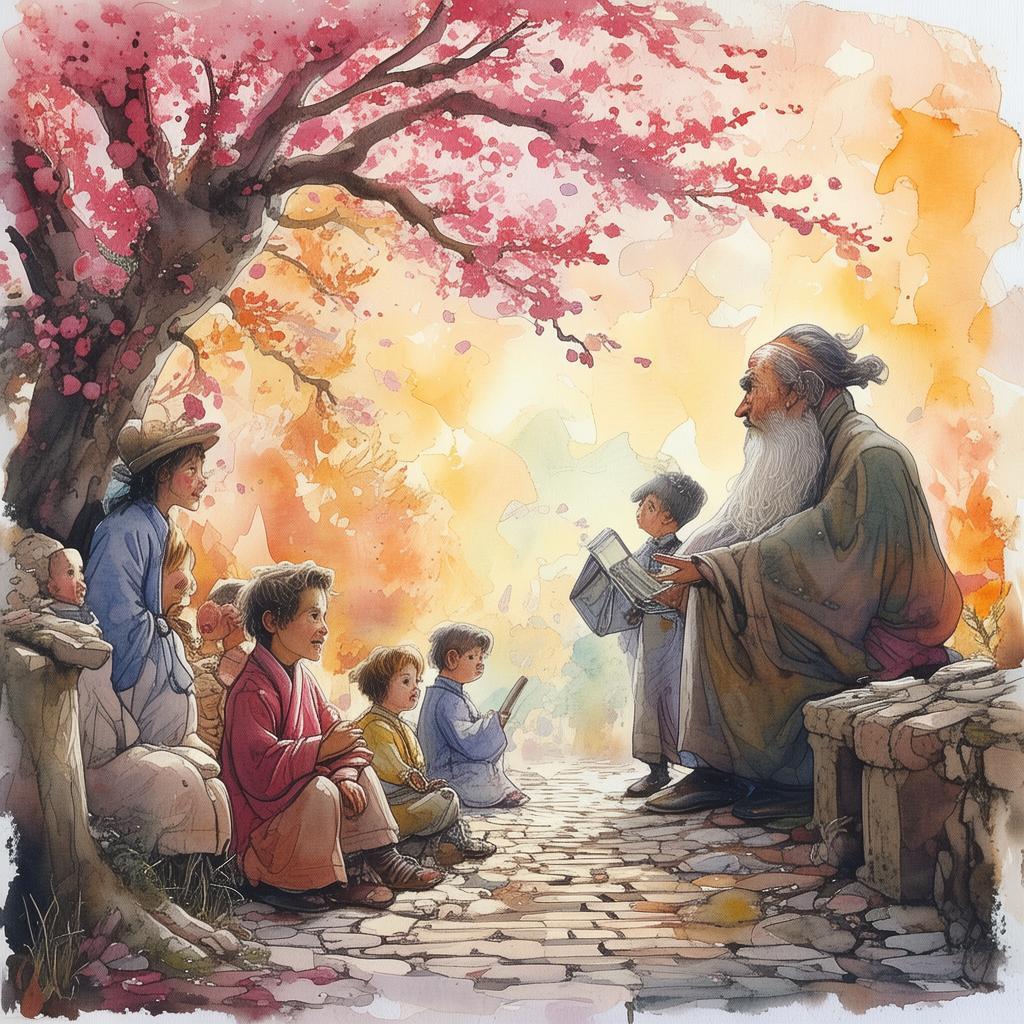
The king, a man known for his fairness, grew suspicious of Thaddeus' actions. He noticed the similarities between Gaius' and Thaddeus' routines, and he suspected that the latter was betraying his brother. The king confronted Thaddeus, who, caught in the act, was forced to admit his deceit.
The revelation sent shockwaves through the kingdom. The people were appalled by Thaddeus' actions, and the once-admired jester found himself shunned by the very crowd he sought to impress. Gaius, on the other hand, was hailed as a hero, his integrity and honesty shining through.
The king, in a fit of anger and disappointment, declared that neither jester would win the contest. Instead, he would hold a new competition, one that would not only test their wit but also their hearts.
The new competition required the jesters to create a routine that would bring joy to the kingdom without any deceit or mischief. Gaius and Thaddeus were forced to confront their rivalry and learn to appreciate each other's strengths.
Gaius, with his heart set on reconciliation, decided to collaborate with Thaddeus. They worked tirelessly, combining their talents to create a routine that was a testament to their friendship. The performance was a blend of Gaius' humor and Thaddeus' mischief, a perfect harmony that left the audience in awe.
When the performance concluded, the king and the courtiers were moved to tears. The king declared the routine a masterpiece, and he awarded both jesters a position of honor within the court. He explained that the true winner was not just one jester but both, for they had learned to overcome their envy and work together.
The kingdom of Jolindor was filled with a new sense of unity, and the jesters, once rivals, were now friends. The story of Gaius and Thaddeus spread far and wide, becoming a legend of the kingdom. It was said that in Jolindor, the greatest jesters were not those who outdid each other but those who outgrew their envy and found joy in each other's success.
The Envious Jesters' Grand Gamble would be told for generations, a tale of envy, rivalry, and the ultimate triumph of friendship and unity.
✨ Original Statement ✨
All articles published on this website (including but not limited to text, images, videos, and other content) are original or authorized for reposting and are protected by relevant laws. Without the explicit written permission of this website, no individual or organization may copy, modify, repost, or use the content for commercial purposes.
If you need to quote or cooperate, please contact this site for authorization. We reserve the right to pursue legal responsibility for any unauthorized use.
Hereby declared.
